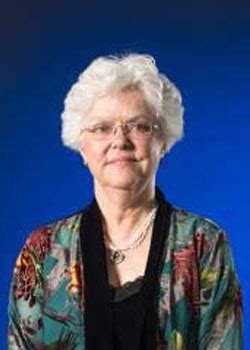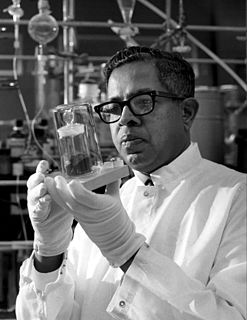A Quote by Kitty Ferguson
So many people among non-scientists see science as an unassailable monolith of truth, and it's not. It's an ongoing self-correcting process.
Quote Topics
Related Quotes
Ares always reemerges from the chaos. It will never go away. Athenian civilization defends itself from the forces of Ares with metis, or technology. Technology is built on science. Science is like the alchemists' uroburos, continually eating its own tail. The process of science doesn't work unless young scientists have the freedom to attack and tear down old dogmas, to engage in an ongoing Titanomachia. Science flourishes where art and free speech flourish.
Scientists are people of very dissimilar temperaments doing different things in very different ways. Among scientists are collectors, classifiers and compulsive tidiers-up; many are detectives by temperament and many are explorers; some are artists and others artisans. There are poet-scientists and philosopher-scientists and even a few mystics.
There is no other species on Earth that does science. It is, so far, entirely a human invention, evolved by natural selection in the cerebral cortex for one simple reason: it works. It is not perfect. It can be misused. It is only a tool. But it is by far the best tool we have, self-correcting, ongoing, applicable to everything.
[Science] is not perfect. It can be misused. It is only a tool. But it is by far the best tool we have, self-correcting, ongoing, applicable to everything. It has two rules. First: there are no sacred truths; all assumptions must be critically examined; arguments from authority are worthless. Second: whatever is inconsistent with the facts must be discarded or revised. ... The obvious is sometimes false; the unexpected is sometimes true.
I don't think any administration, when they come in, thinks that their job is to tell the scientists what the science looks like or to be quiet about the science. Scientists need to remain true and not allow science to be politicized. Scientists are not politicians, and no politician should consider themselves to be a scientist.
These are people from everywhere, from Lawrence Livermore and JPL and Sandia National Labs, the FBI, all over the place, real scientists who see what we're doing, and they consistently thank us. "I agree your results aren't always right," they'll say, "but your methods are clearly showing that science is a re-creative process, and it's an interesting process because it's messy, and no other shows show that."
I don't think the law exists to arrive at the truth. If it did, we wouldn't have exclusionary rules, we wouldn't have presumptions of innocence, we wouldn't have proof beyond reasonable doubt. There's an enormous difference between the role of truth in law and the role of truth in science. In law, truth is one among many goals.































